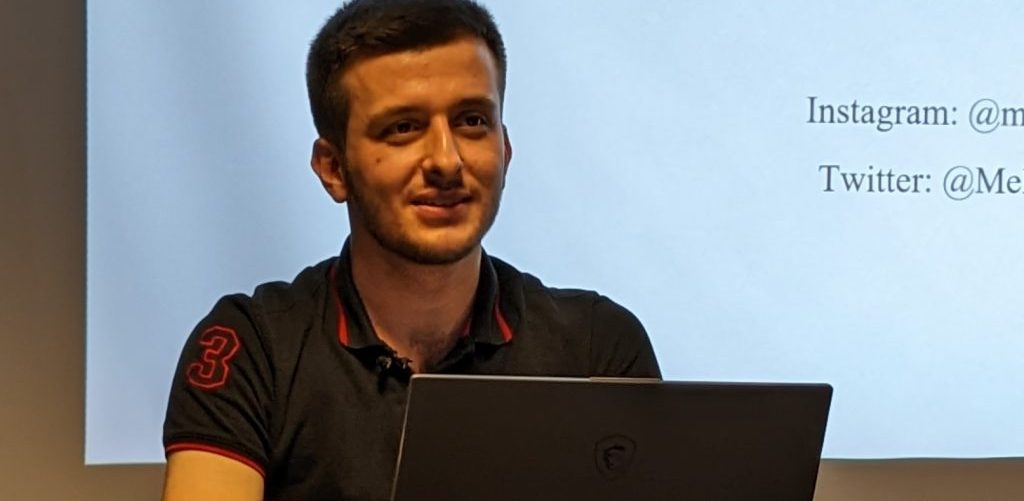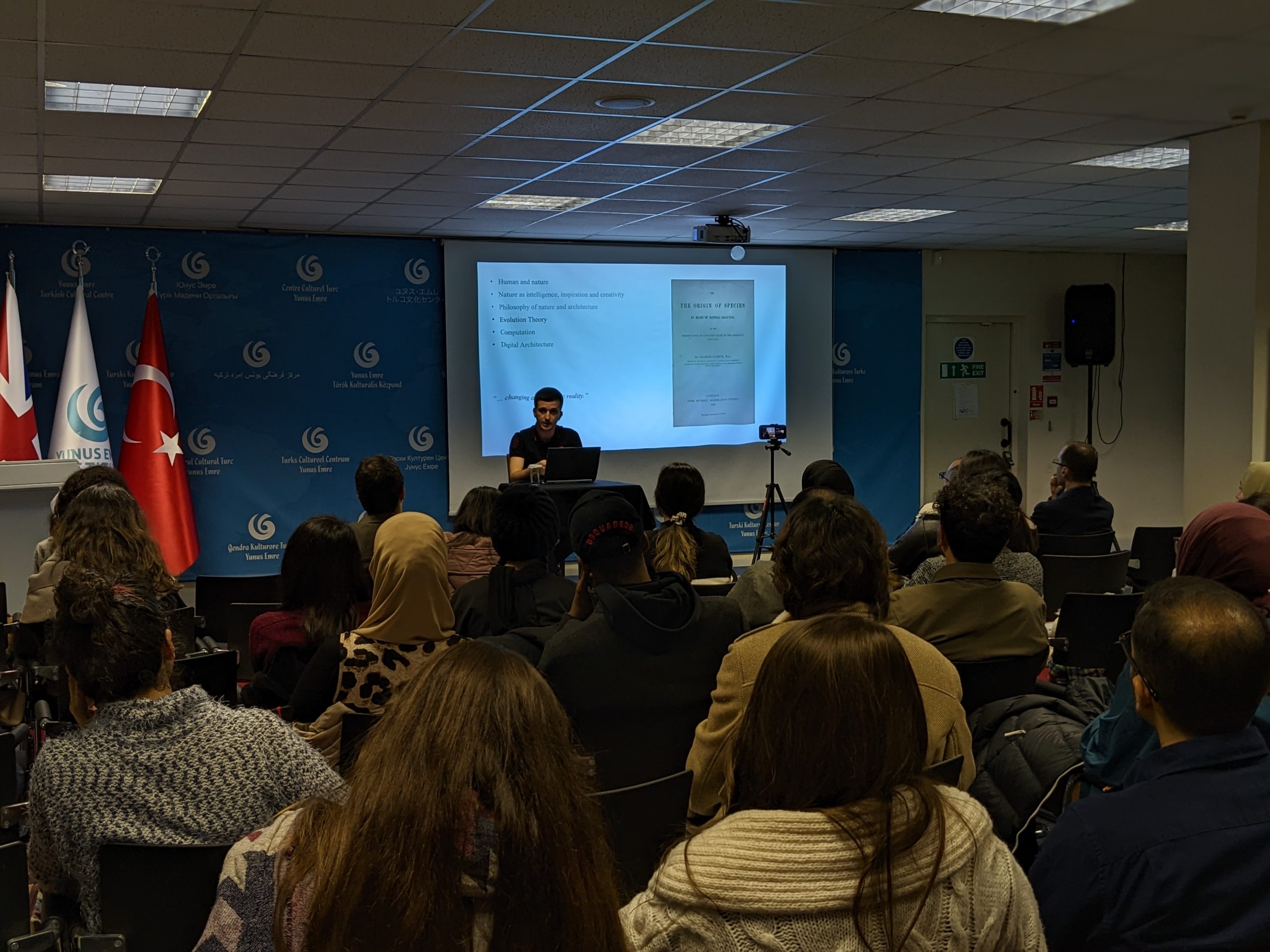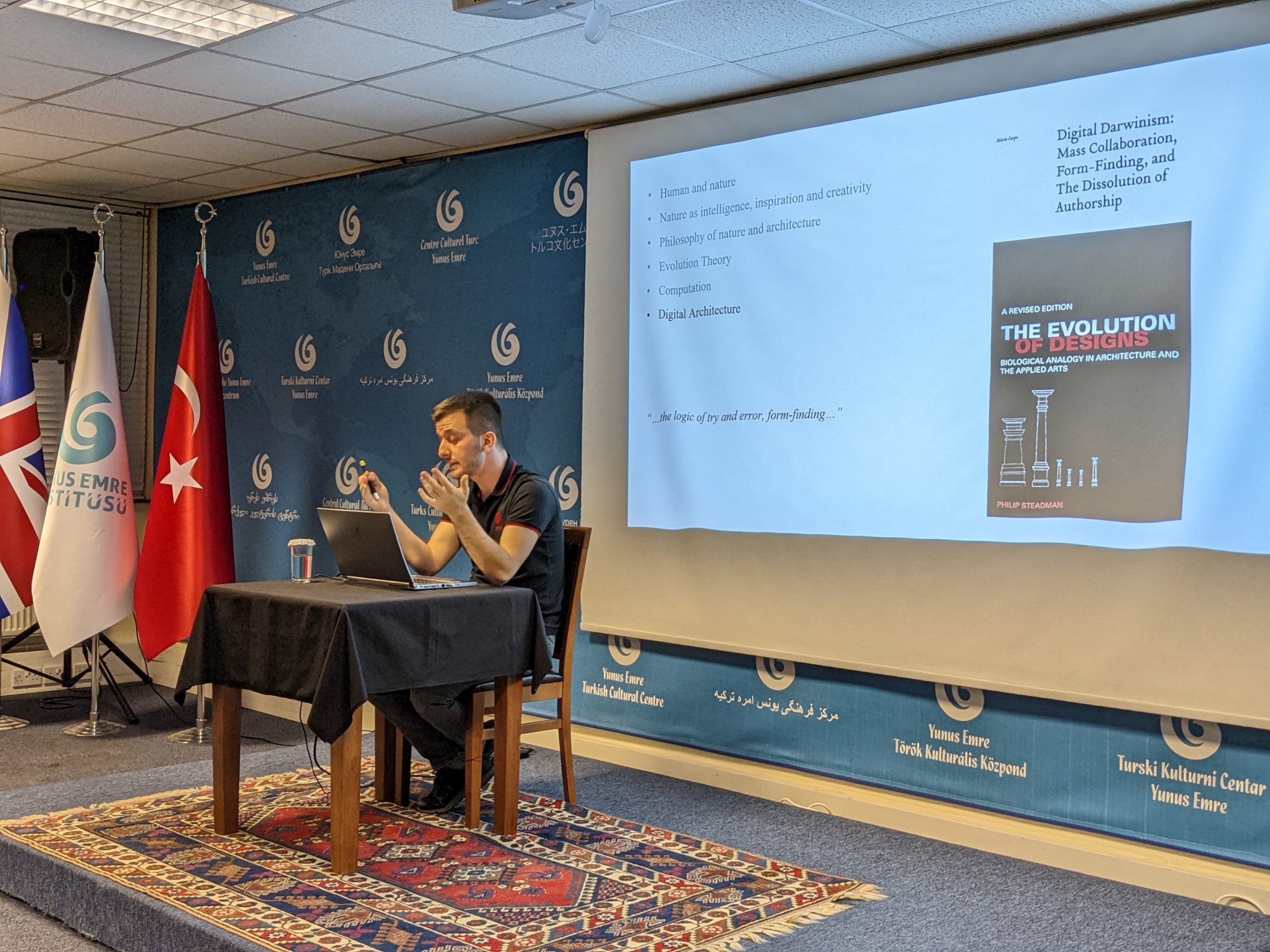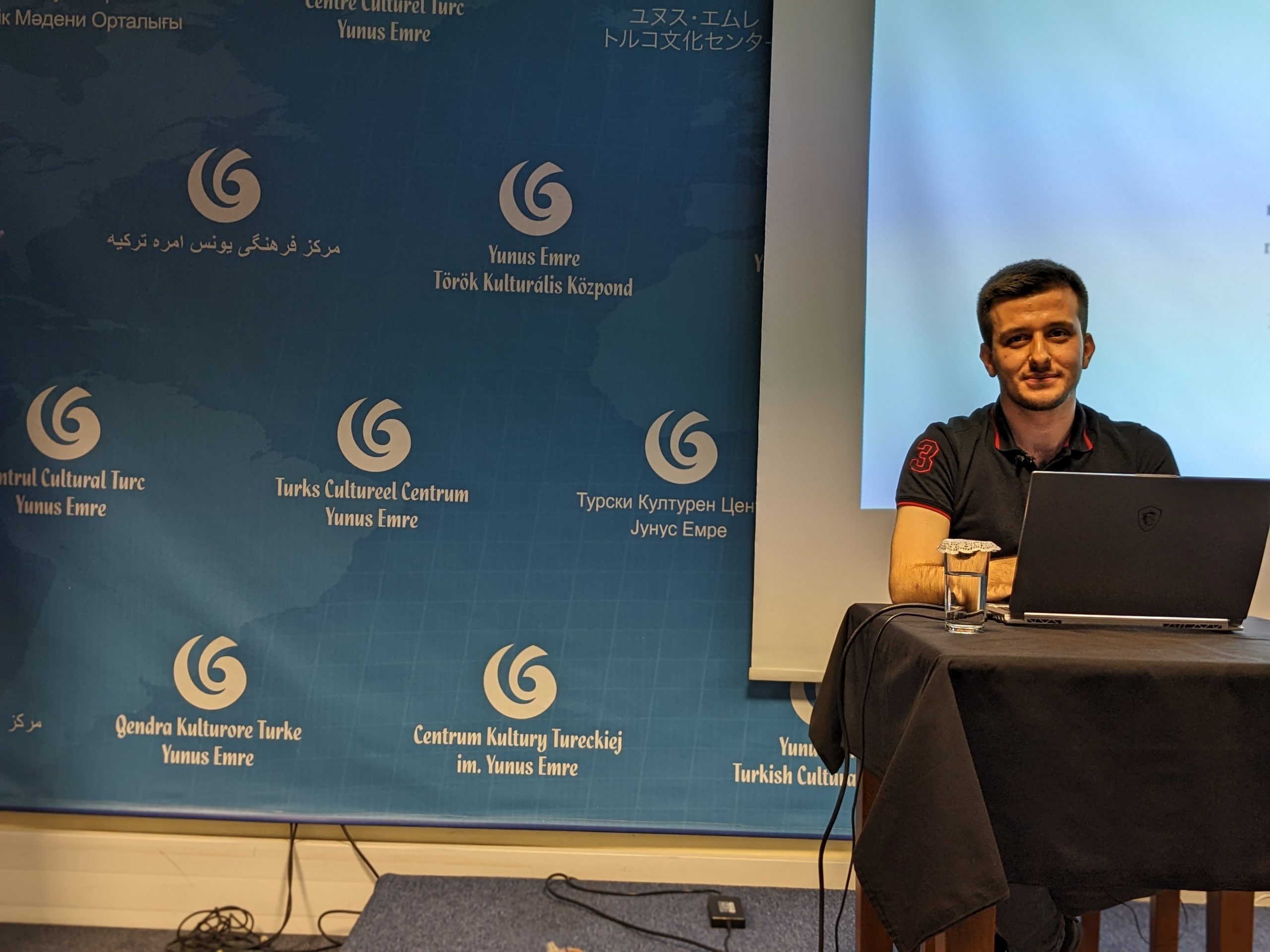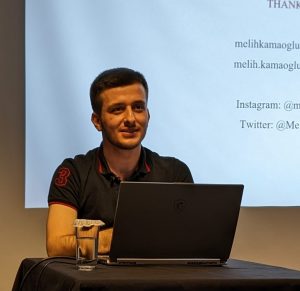Yunus Emre Institute London was delighted to host another striking talk for the 22nd session of the Young Scholar Seminar Series, on Tuesday 29th November 2022 at 7 pm.
Hosting the UCL Architecture and Digital Theory programme PhD candidate Melih Kamaoğlu the talk focused on “Philosophy of Nature and Architecture in the Age of Computation”.
.
In this talk the Melih Kamaoğlu examined how architects have used computation to reflect their philosophy of nature in architectural design after the 1990s.
Kamaoğlu started his talk by explaining how natural philosophy affected architecture in different periods, from ancient Greece to the renaissance. He talked about the main aim of the research by showing how different concepts of nature are simulated computationally and are used as design methods by architects. He focused on the theoretical and historical backgrounds and explained the critical limits and working principles of architectural design models. He also provided intellectual framework for explaining fundamental knowledge transfer between philosophy of nature, computation, and architecture.
In the second part of his talk, he focused on how the introduction of computers into our lives changed the perspective of humanity in understanding the universe and nature much more deeply. Kamaoğlu gave examples on how architects used calculation to reflect their natural philosophies on architectural design after the 1990s.
Emphasizing two key points in his talk, Kamaoğlu stated that the first key point was the development of natural sciences in the same period as the development of computer technologies in the 1930s. According to him, while nature was thought to be a fixed constant prior to the 19th century, it has now been revealed that the evolutionary process in the 20th century is also changing and transforming.
Talking about the changes in the science of genetics as the second turning point, the young scholar analysed how the beginning of understanding nature at the level of the cell deeply affected the field of architecture.
In the final section of his talk, Kamaoğlu discussed the architecture after 2010 and the solutions found by architects to find answers by simulating natural processes on the computer and how to integrate these processes directly into architectural design.
In conclusion, the talk provided an intellectual framework for explaining the fundamental knowledge transfer between natural philosophy, computation and architecture. The participants found the talk to be inspiring in terms of illustrating how a human body is formed from a cell, and how architects are inspired by looking at the background of the process that creates the living thing. After the talk, the participants also had the opportunity to ask questions regarding how architecture goes beyond building design.
The evening concluded with a Q&A session with the speaker, and traditional Turkish Refreshments were served to the guests.
For more information on the event and to view future events, please visit our website: https://yeelondon.org.uk/ or email at londra@yee.org.tr.
.
About Melih Kamaoğlu:
Melih Kamaoğlu is an architectural theorist and historian. He is a PhD candidate and Senior Postgraduate Teaching Assistant in the Architecture and Digital Theory programme at Bartlett School of Architecture, University College London. He received his BArch in 2017, and a MArch in 2020 from Karadeniz Technical University. He worked as a research assistant at Eskişehir Technical University between 2018 and 2020. His primary research interests include architectural theory/history, computation, evolution theory and philosophy of nature.
For more information on the event please visit our website: https://yeelondon.org.uk/ or email at londra@yee.org.tr.

